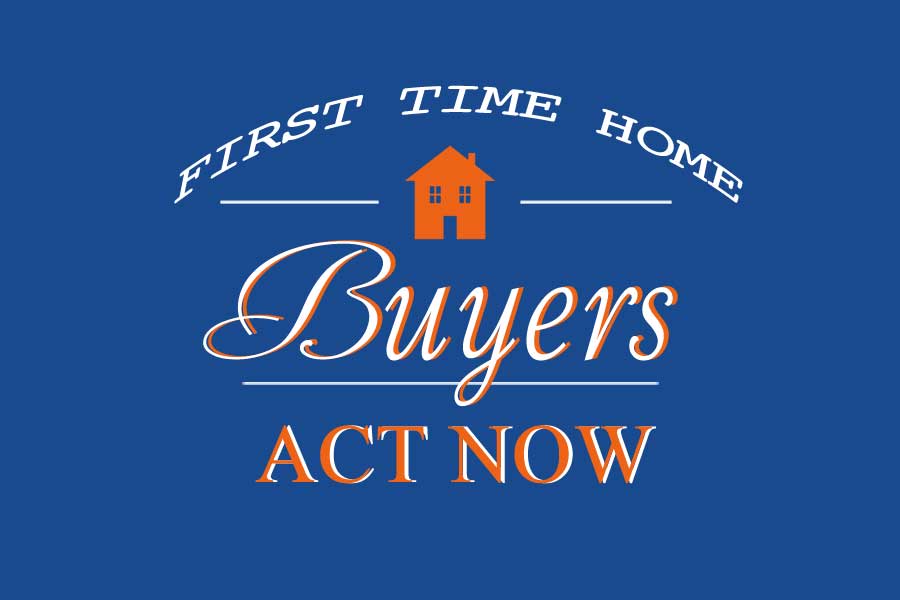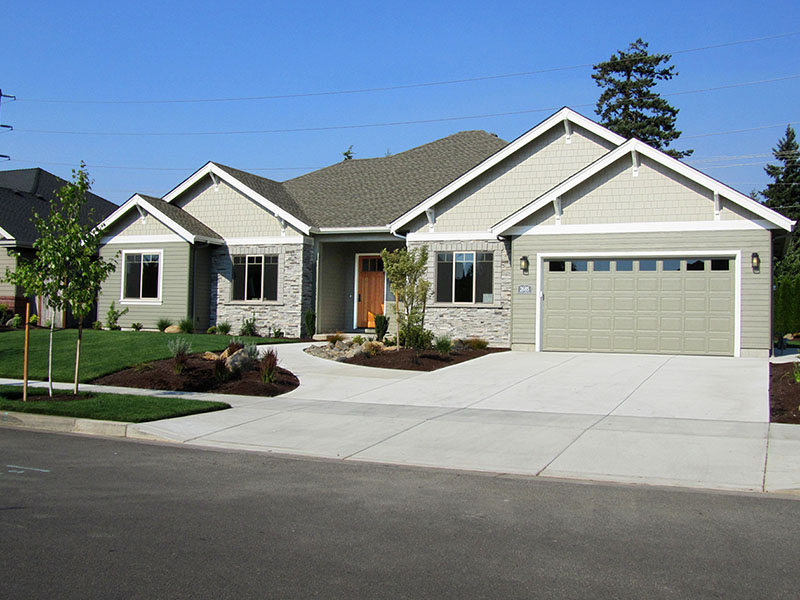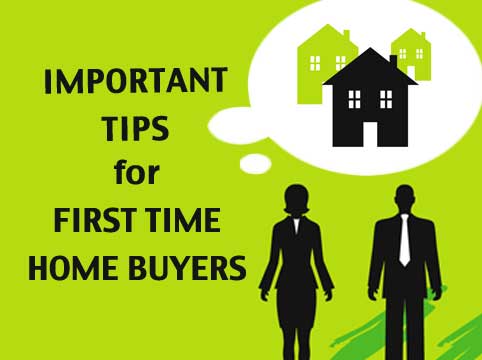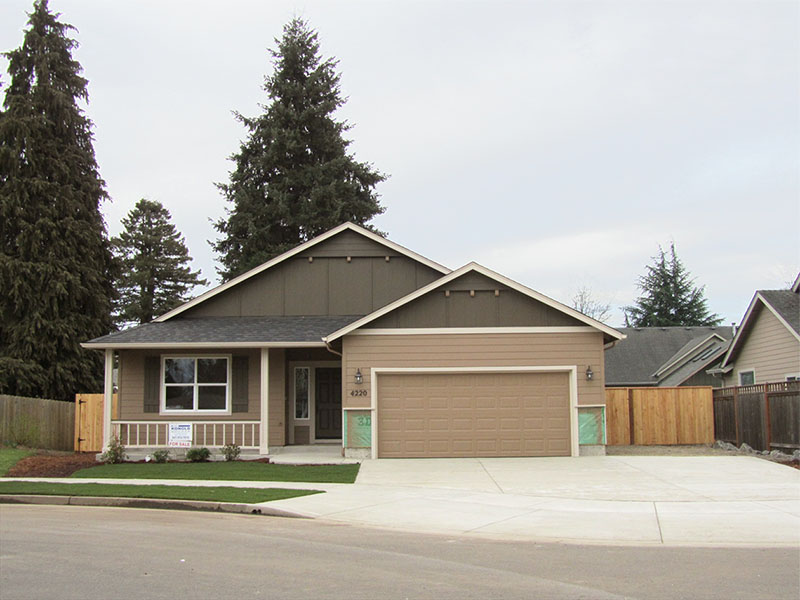What To Expect When Buying Your First Home
Good Morning!
With mortgage interest rates remaining extremely low, first time homebuyers are still making up a huge part of the home purchase market. If you are currently renting and wanting to own a home or if you are otherwise thinking of that first home purchase, this is the market to do it in. The affordability of homeownership may never be much better than it is right now. Here is an article from Realty Times that gives great advice if you are thinking about that first home purchase.
 Few things in life are more exciting than buying your first home. The feeling of turning the key for the first time (or clicking the garage door opener) is thrilling. You'll likely feel a sense of pride like never before. But getting to that point may be a challenge. And the challenges won't end once you move in.
Few things in life are more exciting than buying your first home. The feeling of turning the key for the first time (or clicking the garage door opener) is thrilling. You'll likely feel a sense of pride like never before. But getting to that point may be a challenge. And the challenges won't end once you move in.
The more you know about the process, the more prepared you can be for the wrinkles that pop up, and the more you can relax and enjoy homeownership.
1.It may cost more than you expect.
When you're calculating your monthly payment, don't leave anything out. Add in principal, interest, taxes, and insurance, plus any HOA fee. Then estimate landscaping, pool maintenance if needed, and any other fees there may be. Don't forget to include your monthly home warranty cost if you have one.
Experts recommend putting aside a minimum of one percent of your home price for repairs and maintenance per year, so add that in. Think also about utilities. If you're coming from a small apartment, you might have a bump in that monthly cost. Only by taking a real look at the numbers can you get a true feeling for what you'll pay every month as a homeowner.
2. You may only have to put three percent down.
FHA loans aren't your only low down payment option anymore. Ask your lender about 97% LTV loans that require only three percent down for first-time buyers.
3. You can probably afford it more easily than you think.
Rents have been going up way more than home prices in many real estate markets. A recent analysis by RealtyTrac found that, "Payments on a mortgage used to purchase a three-bedroom home were more affordable than paying rent on a similar home in 66 percent of the counties."
4. But…know how much you can really afford.
Your loan approval will tell you how much the bank thinks you can afford. But they only know so much. If you're planning to have a baby or change careers sometime soon and your income could be affected, you may want to stay lower on the payment scale, which means a higher down payment or a less expensive house (or both).
5. You need a preapproval.
Your REALTOR® will tell you this. Believe him. Even if he takes you out to look at houses without a preapproval (many won't, since it could be seen as an indication that you're not serious about buying), you won't be in a good position to make an offer if you find a place you like. And in a competitive market, that could be disastrous.
6. It may be easier to buy a single-family home than a condo.
Strict FHA restrictions on condos can make for a limited pool of options, and, if you can find one that is approved, it might have a higher interest rate. Be sure to ask your lender to provide a side-by-side analysis of a condo and single-family home in similar price ranges; a home that is priced slightly higher may end up being the answer when you examine the numbers carefully.
7. You might be able to get money to fix up your home.
Fashion yourself a DIYer? Ask your lender about 203(k) and HomeStyle loans. "Fannie Mae and the Federal Housing Administration have home renovation mortgage programs that allow buyers to borrow based on what the house is expected to be worth after the home rehab is completed," said Bankrate.
8. You might be able to get a gift for your down payment.
"Cash gifts are also allowed for low-down payment mortgages including the FHA purchase mortgage, which requires a 3.5% down payment and the Conventional 97 mortgage from Fannie Mae and Freddie Mac which requires just 3% down," said The Mortgage Reports.
They're also allowed on many other conventional loans, and can help a first-time buyer get to a 20 percent down payment that would help them qualify for the lowest rates. Check out The Mortgage Reports for important details about down payment gifts. Do it wrong, and your application can be rejected. There also may be tax implications for improper gifting.
9. Gift funds may also be allowed for your closing costs.
Be sure to ask your lender. Not having to come up with thousands of dollars at closing means money for new furniture!
10. You'll have a love-hate relationship with your HOA.
You'll appreciate them when the car up on blocks for a week in front of the neighbor's house is towed. Not so much if it's your car up on blocks.
11. You'll want to thoroughly check out the neighborhood.
Make sure there are no development plans that may affect your home value in the neighborhood you're looking at. Talk to the neighbors. Check for sexual predators nearby. And spend some time in the area at different times and on different days so you can observe the neighborhood flavor. You also might want to arrange to commute from/to the house one day to see what you have in store.
12. You'll want good schools. Even if you have no kids.
Families inherently seek a neighborhood with quality schools. But studies show that good schools can dramatically affect home value, making these neighborhoods desirable to buyers without kids as well. "Living near a high-scoring school can increase your home's value by over $200,000, according to the Brookings Institution," said AOL.
13. You can derail your loan approval.
Don't check your credit, get a new store credit card, close an account, or buy a new car while you're in escrow - you might not stay in escrow. Listen to your lender and hold off on anything that could affect your credit or financial situation until you close.
14. The home inspection will reveal some issues. It always does.
Keep a cool head and let your Realtor handle any negotiations. You just might come out better than before.
15. You're gonna get a tax break.
You're probably already looking forward to this, but do you know the details? Your mortgage interest is a write off. So are your Private Mortgage Interest (PMI) fees and any points you pay to buy down the rate on your mortgage. All told, you could be getting a nice little return come tax day. Check out this calculator to estimate your tax break.
16. It will be more work than you imagined.
Stuff leaks, breaks, makes weird noises, shuts down, peels, crumbles, flames out, and falls off. You will learn how to fix it all, or at least how to make a phone call to someone who can.
17. It will all be worth it.
Have An Awesome Week!
THIS WEEKS HOT HOME LISTING
 2685 Valley Forge Dr
2685 Valley Forge Dr
Price: $524,900 Beds: 3 Baths: 2 ½ Baths: 1 Sq Ft: 2302
Anslow & DeGeneault 2015 Tour of Homes model home. Gas forced air 92% efficiency, exquisite single level, located in beautiful Hawthorne Estates. Easily entertain in Great Rm overlooking backyard. Escape to luxurious owner’s ste w/ tray ceilin...
View this property >>


 First-Time Home-Buyers: Know What You Can Afford
First-Time Home-Buyers: Know What You Can Afford 4220 Heins Court
4220 Heins Court



